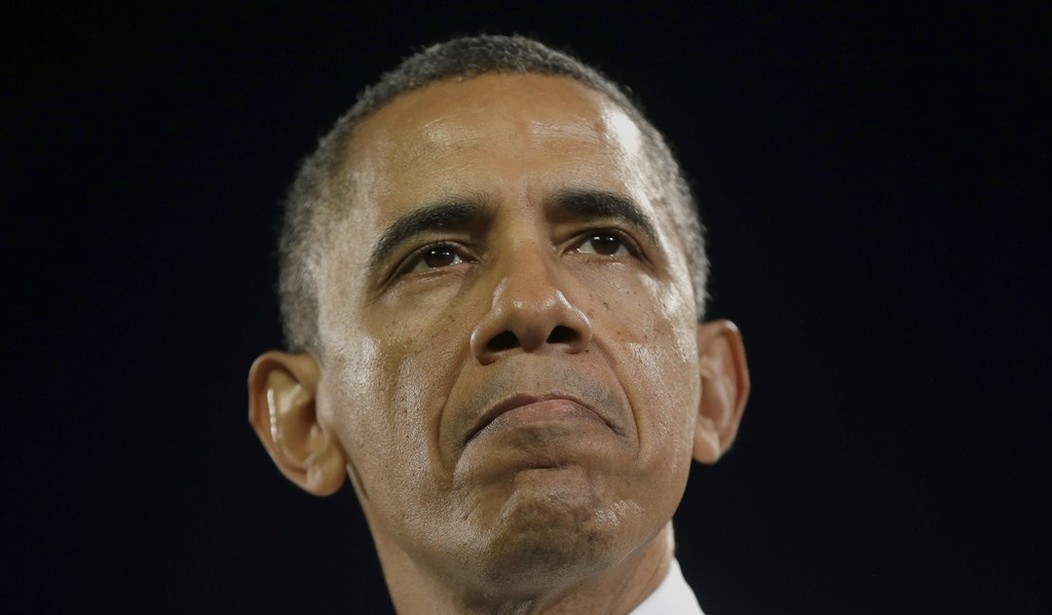Where have we seen an anti-Obamacare threshold of two-thirds before? Oh, right. In this case, undecided voters basically fall into two categories. They're either pure independents, or they're low information voters who nonetheless say they're likely to go to the polls in November. It looks like the GOP is enjoying a significant advantage among both groups heading into the midterms -- including with those under-informed voters who are so often ripe for Democrats' picking. The perception that Obamacare stinks has calcified in the public's imagination, and it's tough to reverse those sort of sentiments, especially amidst powerful headwinds. Check out this graph:

- On the generic Congressional ballot, 53 percent of likely voters say they'd support a "Republican who will be a check and balance to Barack Obama," while 47 percent prefer a "Democrat who will help Obama pass his agenda." That's a six-point GOP edge. Among independents, Republicans hold a 30-point lead on this question.
- Eighty-seven percent of respondents say the "Affordable" Care Act will not make their coverage more affordable, with nearly six in ten predicting higher costs as a result of the law.
- Question: "Has the government's implementation of the 1010 health care law...made you more confident in the government's ability to address problems in the health care sector, less confident, or...no effect either way?" Twenty percent (virtually all Democrats) say more confident, while fully 56 percent say less confident -- including two-thirds of independents. This speaks to my point about Obamacare failing much faster than pro-single-payer Democrats may have hoped.
Allahpundit flags a Pew survey showing strong Republican enthusiasm for the 2014 election cycle. GOP loyalists hold a ten-point enthusiasm edge, and the percentage who say they're excited to vote is higher today than it was in January of 2010. AP correctly notes that Obamacare hadn't yet passed at that point, whereas the current Obamacare implementation meltdown is fresh in citizens' minds. Speaking of which,
Recommended
Problems with the rollout are sure to continue, and they’ll get plenty of attention when they do. It’s also a rule of storytelling that the unexpected always makes a better story — and “people couldn’t keep their health plans because of Obamacare” is always going to be a twist that commands more coverage than “people gain health coverage because of Obamacare.” Even if the Obama administration succeeds in steering more attention to the successes, like the people with pre-existing conditions who are getting better deals now, that may not make a big difference to the mindset of the majority of Americans who already have health insurance through the workplace, who just want to make sure their own coverage won’t be affected.
But for tens of millions, coverage most certainly will be affected -- on costs, access, and "keeping your plan." National Journal notices that the administration shifts its own definition of Obamacare "success" with such regularity that's hard to keep track. The goalposts are being dragged all over the field. They're desperate to distract from relentless headlines about rising premiums, swelling out-of-pocket costs, denied care due to Obamacare snafus, and the onslaught of new Obamacare taxes: "Starting in 2014, the Obamacare tax man is coming for insurance companies — who contend a good chunk of these costs will be passed on to consumers in the form of higher premiums." In other words, higher taxes on insurers equals more money out of your wallet, too. Taxing big corporations may sound great, but it impacts average people.
UPDATE - A new Q-poll pegs Obama's approval rating at 41 percent. He's 26 points underwater on healthcare approval, and (-19) on the economy.

























Join the conversation as a VIP Member